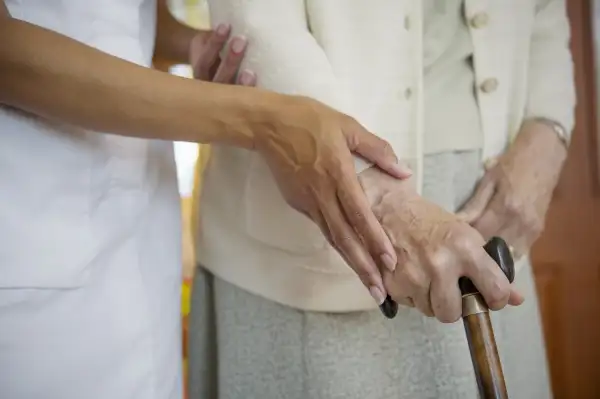How Medicare's New Rules May Improve Eldercare Benefits

Medicare recently announced new rules that may ease the challenges of senior health care. The changes put a new focus on improving treatment of the seriously ill, as well as better planning for end-of-life care.
These reforms are much needed and long overdue. As millions of baby boomers move into retirement, record numbers of Americans are growing older. And these seniors, along with their family members, will need all the help they can get to help them navigate their final days. Here's how Medicare is attempting to cope with these demands.
The Caregiving Challenge
Right now, the nation's current caregiving system relies heavily on the efforts of family members—and it falls far short of meeting demand. As a recent AARP study amply documents, family caregivers are already experiencing a rising financial, emotional, and career toll. It's unlikely that the system will be able to meet even greater demand from a growing number of aging Americans.
Seniors who need assistance with daily living can't get much help from Medicare, which does not cover long-term care. The program restricts its coverage to short-term stays in skilled nursing facilities for seniors who have diagnosed medical needs—usually following hospital stays. Private long-term care insurance is costly and insurers have been leaving the industry or raising premiums as they struggle with higher-than-anticipated claims expenses.
Medicaid is the long-term care insurer of last resort, but that program faces its own enormous financial challenges. And the quality of care provided by many nursing facilities is uneven, at best, and scandalous at worst. The widespread use of antipsychotic drugs in many nursing homes can amount to warehousing of the worst kind.
More Comprehensive Care
In its first move towards addressing these issues, Medicare announced in early July that it would pay physicians to have end-of-life conversations with patients and their families. This is a major reform, since the program typically reimburses doctors only for procedures, such as testing or treatments.
The details of this rule, which would take effect next year, are still to be finalized. But it’s clear that these conversations are the farthest thing possible from the mythical “death panels” that Sarah Palin and others were talking about before the 2012 elections.
Instead, these conversation can be life panels. Doctors can provide invaluable support and clarity about medical decisions that people need to think about, including the care they wish to receive near the end of their life, and how patients' families can provide the help and support that are so important.
Easing Access to Hospice
Following easing of physician reimbursement rules, the Centers for Medicare & Medicaid Services (CMS) announced a second significant shift in end-of-life care. Beginning in 2016, Medicare will launch a large-scale test that will cover expanded hospice care. In addition to providing palliative care, which provides physical and emotional comfort to seriously ill patients, the Medicare pilot project will cover continued curative treatments to slow, if not halt, those underlying conditions.
Right now, ailing seniors and their families are faced with a wrenching choice: continue receiving curative therapies or end their efforts for a cure and enroll in a hospice program. Once in hospice, they normally have been required to end efforts to aggressively treat their illnesses and agree to receive only palliative care.
The hospice care model, including at-home care, has become increasingly popular as a more nurturing and less costly means of providing care than more traditional institutional settings. Some research also has found that hospice patients often survive longer than patients with similar diseases in active-care treatment settings.
The new test program will allow participating patients to continue treatments aimed at prolonging their lives. About 140 hospices around the country will participate in the test, half beginning next year and half in 2018. Their goal is to treat 150,000 Medicare beneficiaries during the five-year test period—that's five times more patients than the test program originally planned.
Better Consumer Data
At the same time, Medicare is also working to provide improved performance information about the care that seniors receive. Last week, CMS announced it would begin providing “star” ratings that measure the quality of care of home health agencies, which have become increasingly important providers of care to Medicare beneficiaries.
Earlier this year, the agency beefed up its evaluations of nursing homes and now also provides star ratings of their performance.
Seniors, and especially adult family members who help them, need to learn more about their options about end-of-life care. Of equal importance, they need to have discussions before a crisis hits about how they wish to end their lives, including creating living wills, health care proxies and other advanced care directives. The Conversation Project is a good source of help for approaching these crucial family discussions.
Philip Moeller is an expert on retirement, aging, and health. He is co-author of The New York Times bestseller, “Get What’s Yours: The Secrets to Maxing Out Your Social Security,” and is working on a companion book about Medicare. Reach him at moeller.philip@gmail.com or @PhilMoeller on Twitter.
Read next: Cutting the High Cost of End-of-Life Care